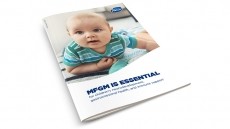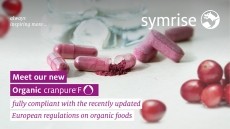Naturis seeks phytosterol permission for dairy
phytosterols - which have been linked to having a positive effect
on lowering cholesterol - from soya bean seeds.
The firm wants to use its phytosterol ingredient in yellow fat spreads, salad dressings, milk and fermented milk type products, soya drinks and cheese. It has asked for novel foods permission. Consumers have become increasingly aware of the benefits of the plant-derived ingredient, which has been noted to lower levels of LDL cholesterol and could be important for protecting against strokes and heart disease. However, at the same time EU regulations have been cited as hampering growth of foods with added phytosterols because they have to go through the novel food application process. Analysts at Frost & Sullivan said the costs involved to go through this procedure can range between €102,000 to €325,000. Of the 46 applications made to EFSA between May 1997 and February 2004 for plant sterol or stanol-based foods, less than 10 were granted marketing authorisation. The first approval for the use of phytosterols as a novel food ingredient was granted to Unilever for the use of a phytosterol esters in yellow fat spreads in 2000. Subsequent approvals were granted for phytosterols in 2004 for Archer Daniels Midland, Pharmaconsult Oy, Unilever and Teriaka Ltd. In the application Naturis said its phytosterols are "substantially equivalent" to ADM's. ADM obtain its sterols from by-products of traditional vegetable oil refining. The source is commonly a blend of crude edible oils, consisting largely of soya bean oil and lesser amounts of other edible oils. Naturis' phytosterol is extracted from non-genetically modified soya bean seeds. It is a mixture of beta-sistosterol, beta-sistostanol, campesterol, stigmasterol and campestanol. Novel foods are defined as those products that were not consumed to a significant degree in the EU before 15 May 1997, the date the original legislation came into force. Such foods thus go under a pre-market safety assessment and authorisation process before being allowed to go on sale in the bloc.












